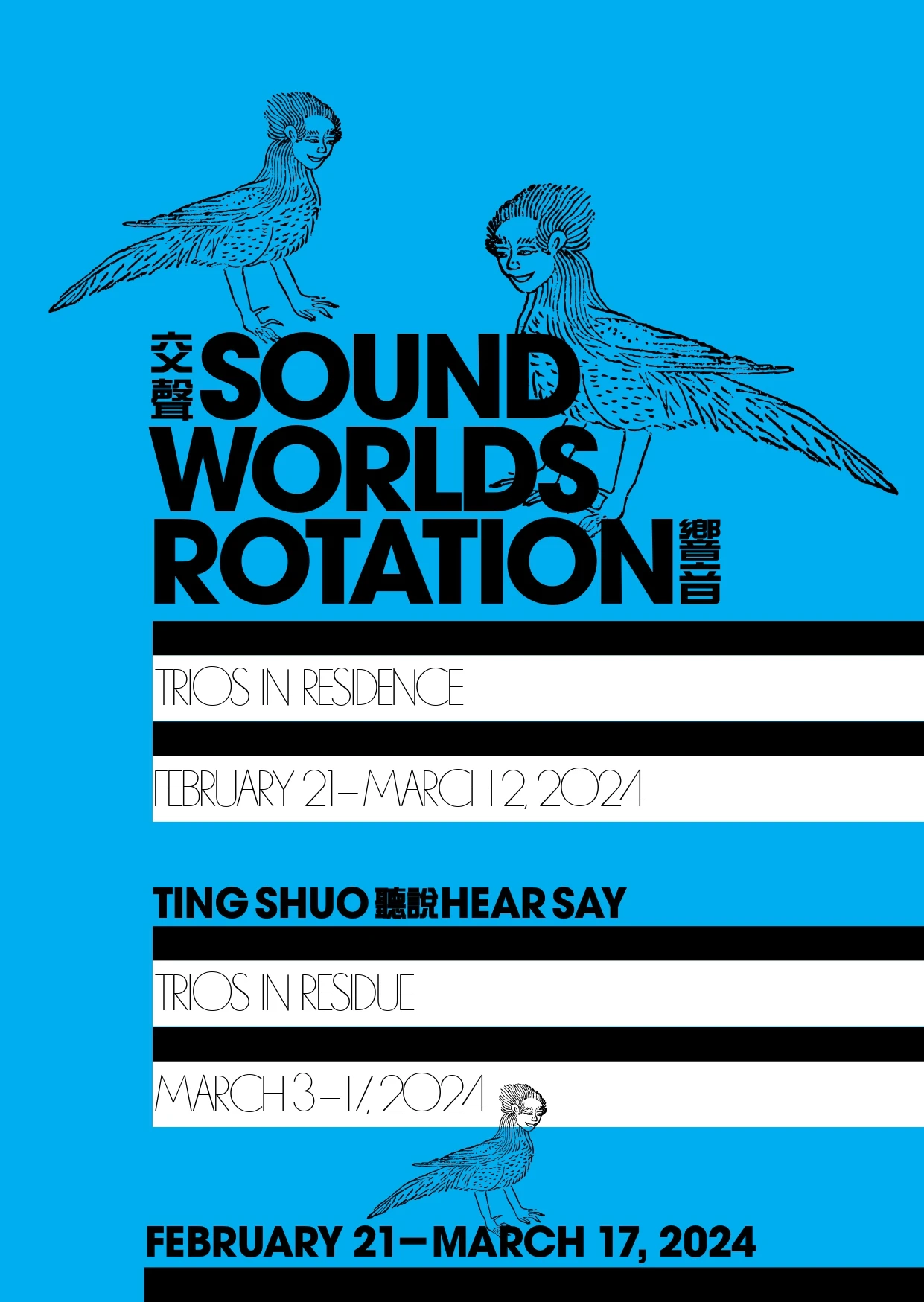Experimental improvised music is a social practice. Above adherence to any demarcated set of aesthetic principles, what is valuable is openness and trust. To listen first, and find a way forward together, meeting your contemporary at the threshold of your experience and theirs.
For ten days, the music room becomes a studio and a living room for 10 artists from Taiwan’s diverse experimental sound scenes. They each spend three days on site in trios, building temporary sonic worlds with each other and breaking them back down. The Music Room will function as a testing ground: a space for attempts and failures, for embracing the mess of collective discovery and establishing understanding through action.
Artists: He Chen-En, Liu Chun-Liang, Daniel Ditlevson, 동이 dongyi, Cia Him-Ian Li, Immanuel Dannenbring, Iris Chun-Tzu Chang, Lin Tzu-Ning, Tseng Po-Hao, Yoshi Yung-Chih Hsueh.
Artists reflection excerpts
To express, from a very young age, we are influenced by others and speak through our own special or ordinary experiences. For me, I think improvisation is about how freely I can express and expand what I have and what I don't have. (dongyi)
Improv is throw and catch, breaking through, creating and constructing. (Yoshi Yung-Chih Hsueh)
Improv is a lingual exploration between self and environment. Every moment can be a new unknown and opening, rebuilt how ones language is constructed, explore the grey area in interpretation. We each project our own languages to a public space, they became a new whole to be experienced. In practice, we created a flexible and near limitless way to exchange and experience messages. (He Chen-En)
A game based on intuition. Communication and unconditional trust are vital in improvisation. (Liu Chun-Liang)
I found my own limitation. In each improv, my body’s limits came to forefront, such as how I can use my muscle, the speed of my brain, and the habits of my thought flow. I also noted over the past year, in living alone and less contacts with others, I have less pressure to be like a “hunter” compare to previous improv. I can be more relaxed in accepting my own desire to change direction or create conflict. (Tseng Po-Hao)
“Be”, beyond the limits of time and space, a comfort. Carrying my known conditions, I focused on the flow and energy of the present. In it I sensed my bounds, opened my frames, learnt to “watch" and respond, let “unknown” be shown. (Cia Him-Ian Li)
The key is the silence between the sounds. The great thing about improvisation is the tension between beauty and pain, human empathy and creative chaos, loneliness and otherness, incompatibility and consent. There is no theory. You just have to listen. This is free open-air art. It depicts many things we know and feel in life. Improvisation is life-affirming, in which we simply awaken to the life we live. (Daniel Ditlevson)
Trust everything that happens (sounds) at the moment. A way of communication that penetrates languages. Amplifying and transforming the vibration in the air, resonating in resonance. (Iris Chun-Tzu Chang)
Improv is to sense selves, others, sites and time. Collaboration is to understand selves through differences, to know what I can do in a group, and to explore the routes ahead together. (Lin Tzu-Ning)
I am intrigued by the fluidity and chemistry developed in free improv ensembles. I am intrigued by the ephemeral nature of it. A lot of the times it might be a miss but sometimes it all comes together and sounds amazing. It seems to be a fine balance between communication and dis-communication. (Immanuel Dannenbring)
Dongyi_Yoshi Yung-Chih Hsueh_Immanuel Dannenbring


Dongyi_Yoshi Yung-Chih Hsueh_Tseng Po-Hao


Yoshi Yung-Chih Hsueh_Tseng Po-Hao_He Chen-En


Tseng Po-Hao_He Chen-En_Lin Tzu-Ning


He Chen-En_Dongyi_Daniel Ditlevson


Daniel Ditlevson_Lin Tzu-Ning_Cia Him-Ian Li


Daniel Ditlevson_Cia Him-Ian Li_Liu Chun-Liang


Cia Him-Ian Li_Liu Chun-Liang_Iris Chun-Tzu Chang


Liu Chun-Liang_Iris Chun-Tzu Chang_Immanuel Dannenbring


Iris Chun-Tzu Chang_Immanuel Dannenbring_Lin Tzu-Ning


